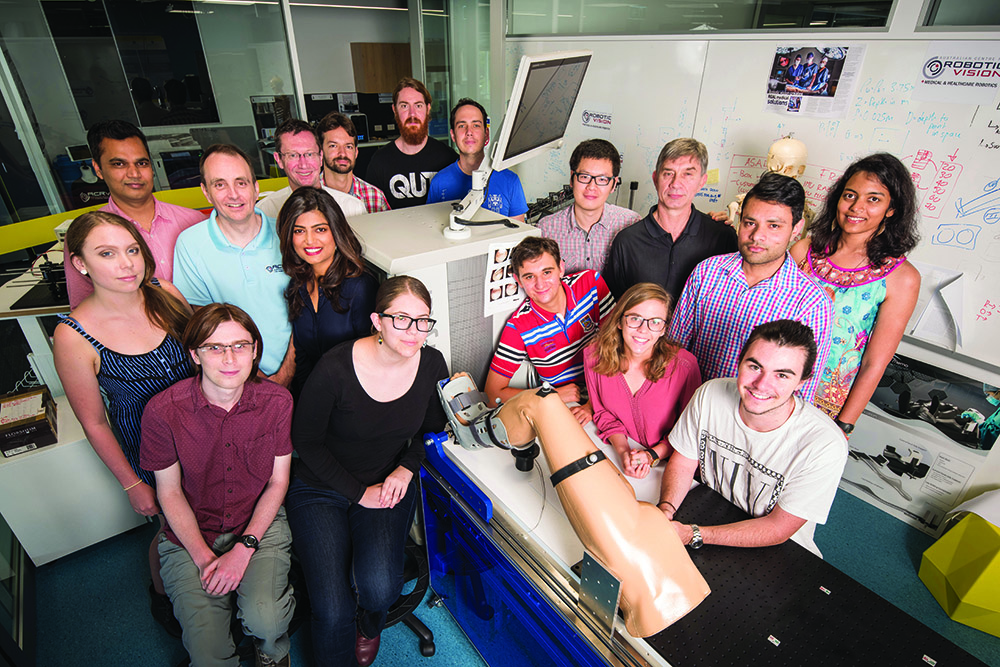New Class of Medical Robotics to Make Keyhole Surgery Safer
An international collaboration (headed by a partnership between QUT and the Centre) is endeavouring to develop new robotic imaging systems that will make keyhole surgeries safer and improve patient recovery time.
Project leader and renowned orthopaedic surgeon Professor Ross Crawford said the new robotic imaging system will allow surgeons to track the position of soft tissue in real time, and in 3D for the first time.
Unlike current medical imaging tools, which can only track the position of bone and medical tools, the new system will combine state-of-the-art miniaturised stereo cameras, 4D ultrasound sensing and artificial intelligence that will enable the surgeon to also navigate tendons and ligaments.
“Combining vision and ultrasound can provide us with more information, which we can use to identify and differentiate the objects within the surgical site,” Ross said.
“Working with a dynamic 3D model rather than a flat image on a screen is a real game-changer in terms of accuracy—it will give the surgeon precise knowledge of how deep the objects in the surgical site really are, (and) will vastly improve both visualisation and access issues, making keyhole surgery more accurate than ever before.”
“It’s the patients throughout the world who will be the biggest beneficiaries, through better outcomes and better access to healthcare.”
The technology is first being trialled on knee arthroscopy surgeries, but the hope is that it can be modified to assist with other surgeries including hip, shoulder, abdominal, and eventually even heart.
The research is supported by an AU$996,000 Australia-India Strategic Research Fund grant from the Australian Government. QUT will collaborate with researchers from the Indian Institute of Technology-Madras, All India Institute of Medical Sciences-Delhi, Perfint Healthcare Indian Institute of Technology-Kharagpur, Manipal University, and the University of Adelaide.

▴ Medical robotics team: Clockwise from far left: Lindsey Paul, Timothy Chant, Dr Anjali Jaiprakash, Kristine Davis, Dr Ajay Pandey, Professor Jonathan Roberts, Professor Ross Crawford, Dr Thierry Peynot, Douglas Palmer, Jeremy Opie, Dr Leo Wu, Andrew Razjigaev, Mario Strydom, Clare Villalba, Hardik Patel, Vibhavari Dasagi and Charles Grist. Not photographed Andres Felipe Marmol Velez.
